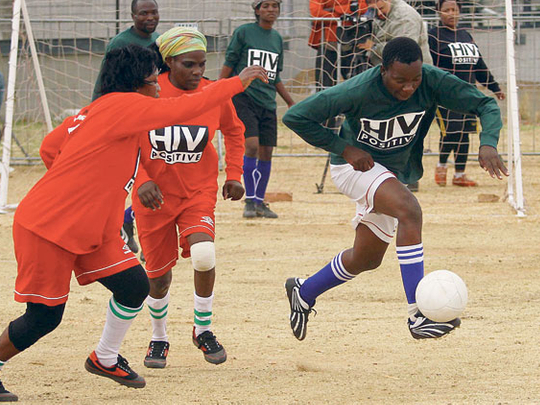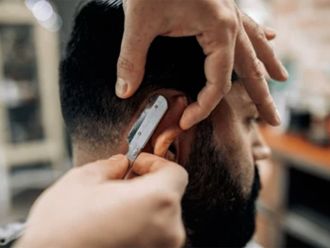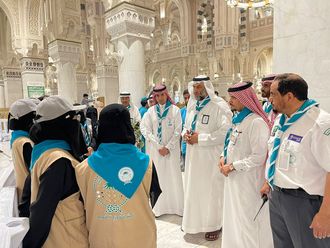
Johannesburg: There's no exaggeration in this tournament when players talk about a football match being a matter of life or death.
Six football teams comprising people living with HIV/Aids competed in a mini-tournament yesterday to draw attention to a concerning issue could have a direct impact them and millions of others: foreign donors seem to be tiring of paying for the medication that keeps Aids patients alive in Africa.
The so-called "Halftime: No Time to Quit" tournament, played on a dusty pitch in downtown Johannesburg, is using the World Cup's buzz and football allegories to sound the alarm.
Diminishing funding
Aids groups say that foreign funding for life saving medication, known as antiretrovirals, is diminishing. These drugs have revolutionised Aids care, helping people live longer with the virus.
Some four million people around the world are alive today thanks to the medication, according to the international aid group Medecins Sans Frontieres, also known as Doctors Without Borders, or MSF. There are some nine million more, however, who remain in urgent need of treatment but do not have access to the drugs.
The teams of men and women from South Africa, Mozambique, Swaziland and Zimbabwe wore jerseys printed with the words "HIV Positive" before running onto the pitch for five-a-side games in the Halftime tournament.
Every goal scored is proof that those living with the disease are fully committed in their life-or-death match against HIV and Aids, MSF said.
Lucky Mngometelu is a father of four and has been living with Aids since 1995. For nine years his health slowly deteriorated. In 2004, Mngometelu was put on antiretrovirals. And his life was transformed.
"I would have been long, long dead, if it was not for ARVs," the lanky 39-year old from Swaziland said. "I want to show the world that even someone with HIV can play and lead a normal life."
Mngometelu's team is called HIV Conquerors.
"Although I live with HIV, I have conquered it inside my body," he said as he sat on a wooden bench, preparing for his match. "But you got to think about all the millions out there who still need the treatment."
On the far side of the pitch, among those watching the games, organisers put up effigies of President Barack Obama and leaders of the EU, World Bank and African Union in what they called the "Quitters Box." Their printed faces were covered with scarves.
Treatment
After each goal scored, stewards would lower the scarf from the eyes of the effigies in a symbolic gesture to signify getting the world leaders to see the results the treatment has.
"These matches are played by the people who live with Aids, and treatment they receive works, and these people playing prove that," said Nokwezi Hoboyi, who has been living with the disease for 10 years.
"Less funds mean more people will die."












